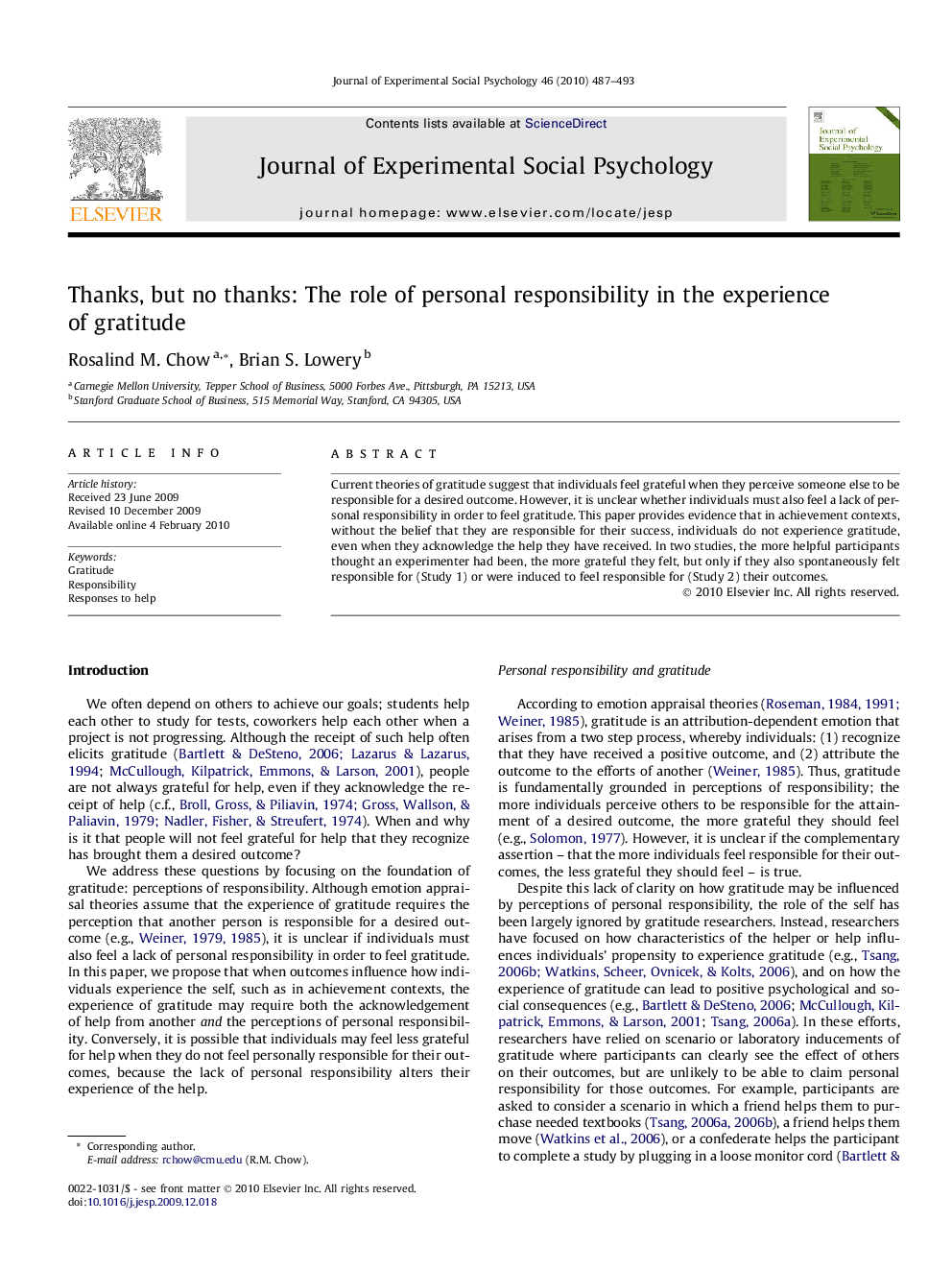| Article ID | Journal | Published Year | Pages | File Type |
|---|---|---|---|---|
| 948671 | Journal of Experimental Social Psychology | 2010 | 7 Pages |
Abstract
Current theories of gratitude suggest that individuals feel grateful when they perceive someone else to be responsible for a desired outcome. However, it is unclear whether individuals must also feel a lack of personal responsibility in order to feel gratitude. This paper provides evidence that in achievement contexts, without the belief that they are responsible for their success, individuals do not experience gratitude, even when they acknowledge the help they have received. In two studies, the more helpful participants thought an experimenter had been, the more grateful they felt, but only if they also spontaneously felt responsible for (Study 1) or were induced to feel responsible for (Study 2) their outcomes.
Keywords
Related Topics
Life Sciences
Neuroscience
Behavioral Neuroscience
Authors
Rosalind M. Chow, Brian S. Lowery,
